Scientific Research and Experimental Development (SR&ED)
Earn Retroactive Research Tax Credits on Costs.
The Scientific Research and Experimental Development (SR&ED) tax credit is the largest single source of Canadian federal government support that incentivizes business-led research and development projects. The program provides more than $3 billion in tax incentives to over 20,000 claimants annually.
Watch our SR&ED 101 video series to learn more about the SR&ED program, it’s eligibility criteria, and how to leverage this tax credit for your business.
Funding Amount
Tax credits for up to 69% of labour and overhead costs, 36% of contractor costs, and 45% of material costs. All expenses must be commensurate with the needs of the scientific research and experimental development activity taking place within the company.
Eligible Applicants
Applicants must be operating either basic research, applied research, or experimental development in Canada and be developing new products, processes or making incremental improvements to them.
Eligible Activities
Eligible expenditures include labour, contractors, materials, and overhead costs that directly relate to and commensurate with the needs of the activity required to attempt to resolve the technological uncertainty, obstacle, or challenge.
Program Deadlines
The reporting deadline for this program is 18 months from the end of the tax year in which the qualifying expenses were incurred.
Provincial & Territorial SR&ED Variants:
In addition to the federal Scientific Research and Experimental Development program, there are also provincial and territorial variations of SR&ED that your business can apply to on top of the federal program. Most provinces and territories have one of more funding streams can be applied too with their own eligibility criteria, funding amounts, eligible expenses, and deadlines to apply. Learn more about these variations of SR&ED:
- Atlantic Provincial SR&ED Tax Credit Variants
- Alberta SR&ED Tax Credits
- British Columbia SR&ED Tax Credits
- Manitoba SR&ED Tax Credits
- Ontario SR&ED Tax Credits
- Saskatchewan SR&ED Tax Credits
- Territory SR&ED Tax Credits
Scientific Research and Experimental Development (SR&ED)
Amount of Tax Credit
The Scientific Research and Experimental Development (SR&ED) program offers different levels of funding depending on the eligible expense:
- Labour: Up to 69% of eligible salaries (including overhead).
- Contractor: Up to 36% of contractor costs.
- Materials: Up to 45% of materials consumed.
In addition to the federal credit, most provinces and territories also provide additional support of between 3.5% and 30% of eligible qualifying expenditures. See the full list of provincial funding amounts.

Scientific Research and Experimental Development (SR&ED)
Eligible Applicants
The federal Scientific Research and Experimental Development (SR&ED) program is offered Canada-wide combined with provincial funding. With SR&ED being one of the largest tax incentive programs it is available to a wide range of Canadian businesses including:
Canadian-Controlled Private Corporations (CCPC)
- Canadian owned businesses subject to certain size tests may earn a refundable Investment Tax Credit (ITC) at the enhanced rate of 35% on qualified SR&ED expenditures of up to $3 million. Eligible expenditures beyond this threshold or for CCPC’s not meeting the size tests attract a non-refundable ITC at 15%.
Other Corporations
- Other corporations can earn a non-refundable Investment Tax Credit (ITC) at a rate of 15% on qualified SR&ED expenditures.
Individuals and Trusts
- Individuals and trusts can earn a non-refundable Investment Tax Credit (ITC) at a rate of 15% on qualified SR&ED expenditures.
Members of a Partnership
- The Investment Tax Credit (ITC) is calculated at the partnership level then allocated to eligible members (individuals, corporations or trusts).

Scientific Research and Experimental Development (SR&ED)
Eligible Expenditures
Projects that are eligible to receive funding through the Scientific Research and Experimental Development (SR&ED) program must be conducting experimental development and/or research activities exhibiting some level of uncertainty and risk as evidenced by the availability of solutions to overcome this uncertainty available in the public domain. Eligible labour expenses will cover the portion of an individual’s role that revolves around such experimentation. Eligible materials and supplies must relate to the qualifying projects to receive tax incentive funding.
Labour:
- Based on time spent on eligible activities in Canada; and
- Limited ability to claim work outside Canada for Canadian employees.
Contractors:
- Contractors Portion of contract related to SR&ED performed on your behalf; and
- Must be Canadian contractors and work must be performed in Canada.
Materials:
- Consumed (i.e. scrapped) and Transformed, Prototypes, Trial materials; and
- Materials can be purchased from Canadian or non-Canadian suppliers.
Overhead:
- Proxy method: 55% of (adjusted) labour costs; and
- Traditional method: must be directly related and incremental to the prosecution of SR&ED.

Scientific Research and Experimental Development (SR&ED)
Program Deadlines
SR&ED claims are due within 18 months of the fiscal year end of the corporation. Once the claim is filed, CRA reserves the right to conduct a review of the claim to determine whether the claimed projects meet the definition of SR&ED in the Income Tax Act. In the event of a review, CRA may conduct a joint technical-financial review or just a financial review. Upon approval, the SR&ED tax credits may be refundable in cash, used to offset taxes payable, or otherwise carried forward for up to 20 years. These carry-forward credits may survive mergers, acquisitions, amalgamations and wind-ups under certain conditions.
To determine whether your business is eligible for benefitting through the Scientific Research and Experimental Development (SR&ED) tax credits, consider speaking with the Mentor Works team of Canadian government funding experts.

Latest Scientific Research and Experimental Development (SR&ED) News
Top SR&ED Resources:
There’s a lot to learn about the Scientific Research and Experimental Development (SR&ED) program, so we’ve created this list of our top resources for businesses that are new to SR&ED tax credits and want to learn more about the program through helpful and easy to understand content. We recommend the following resources to get started:
- Article: What is SR&ED? Research and Development Funding
- Article: How to Determine if You’re Eligible for SR&ED
- Article: The How & Why of SR&ED Tax Credits
- Article: IRAP or SR&ED: Which R&D Funding is Right for Your Business?
- Article: Applying for SR&ED During Experimental Production
- Video: SR&ED 101: What is SR&ED?
- Video: How to Determine if You’re Eligible for SR&ED
- Video: The “How” and “Why” of the SR&ED Tax Credit








